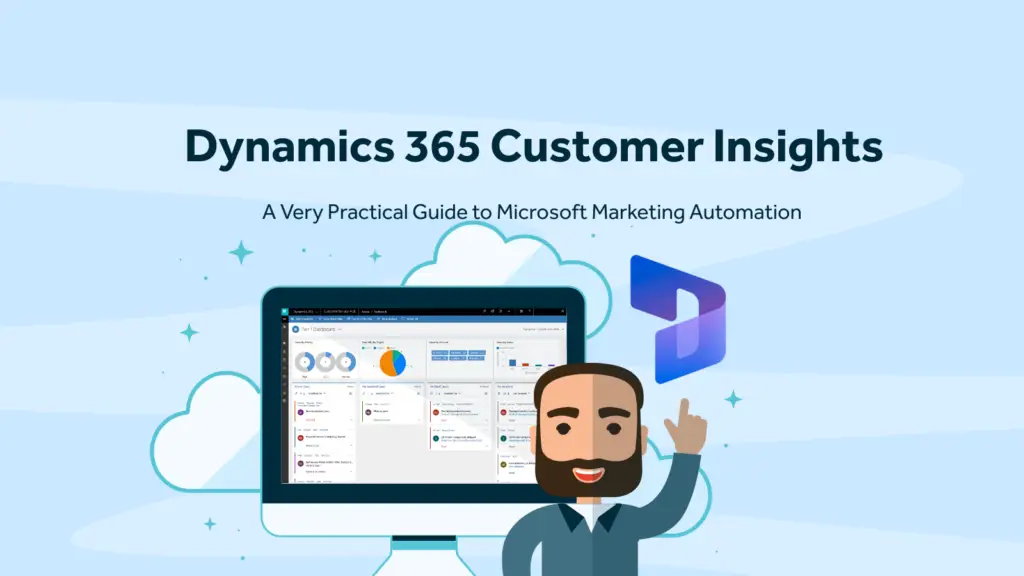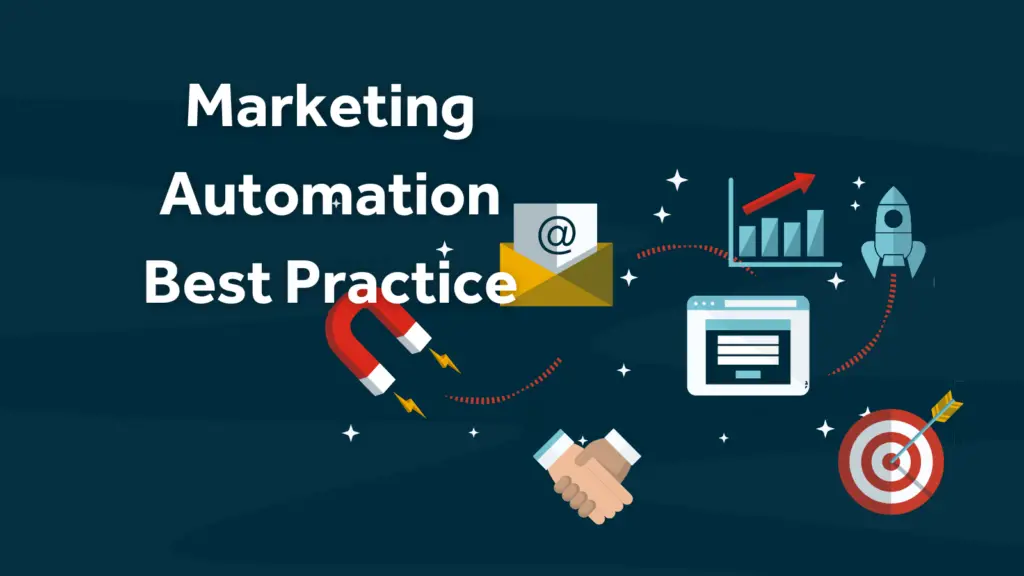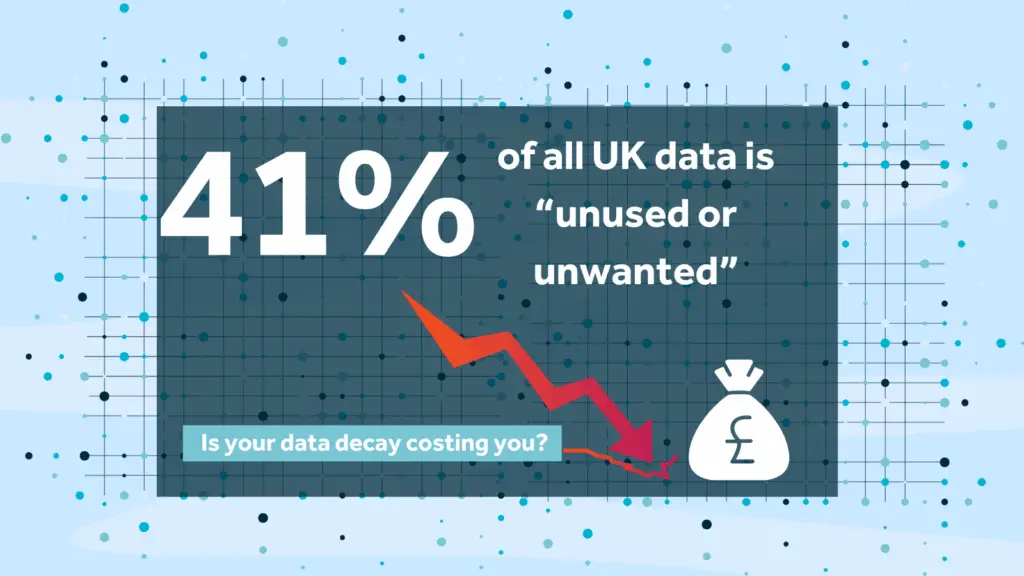The CRM market offers an array of options, some of which allow businesses to get set-up and started super quickly. Others that offer customisation take a little longer to implement. Depending on your chosen route, you may need a partner or consultant to help them get things off the ground and stay by their side as they grow their business.
We’ve spoken before about the difference between out-of-the-box or ‘off-the-shelf’ CRMs previously, and they have their merits and place – with core benefits being low cost, quick set up and easy-to-use interface. However, we have also discussed the drawback – especially when a business wants to scale. The simpler out-of-the-box solution (but not always) can hold back companies and slow or even prevent growth, as they aren’t as flexible as other more custom-built solutions.
If you are a business that is going for growth and has bigger ambitions, it could be the righ time to upgrade, which is when considering moving from an out-of-the-box product to a custom solution could be wise. In this instance, a CRM partner or consultant could pay back over and over again. But I know what you’re thinking – specialist consultants come with higher price tags. We’re here to debunk that myth and explain it is often the smarter move for businesses serious about expansion and success.
Signs you would benefit from a CRM partner
First, it’s important to understand when it’s the right time to hire a CRM consultant or a partner. The biggest sign is that you realise that you don’t have the skills and experience in-house; this is often the case with smaller businesses. You may have one person responsible for a multitude of roles and taks who are busy spinning many plates and doesn’t have the specialist knowledge in CRM to make an impact operationally.
Another clear sign is related to skills and resources, and that’s when your plans to make changes in a specific area keep being pushed back – if you find that your CRM project is never moving forward, it is likely you don’t have the people power to get it done. By bringing in another set of specialist hands, not only is it resolving the resource issue, but it is doing it efficiently as they won’t be distracted – their sole focus is this area of your business. And therefore, the speed of change can be quite phenomenal when you focus more time and skills on a specific area.
If you have committed to improving your data and CRM in a set period – say within 12 months, then you should look to increase your resources and consider outsourcing.
If your business is on the larger side and you have a dedicated IT and/or data team, you could still massively benefit from hiring an external CRM professional; as we’ve previously said – additional hands can really speed up your project and transformation. They can also expertly project manage and pull together all of your assets, whether that be people, time and software or hardware. Using their expertise, they can gather all of your information, understand your needs and wants and help you identify the right solution, even working with you through the full selection, implementation and roll out phases.
What does a CRM partner do?
Another option is to work with a CRM partner who, in most cases, will specialise in one type of software and have accreditation from that software provider.
They are experts in CRM and data management and will be hyper-specialised in a specific software solution, and this is great if you are sure of what CRM platform would be best for you. That said, contacting different partners who offer different solutions isn’t a bad idea either. Whilst it is critical you select the right software, it is also vital to choose the right partner for your organisation, as there is a world of difference between a mediocre partner and a fantastic CRM partner.
Similar to a CRM consultant, a partner is a specialist in CRM technology and data, but often focuses on a specific software type. Their help can be invaluable if you generally have a knowledge gap in data and CRM systems and system management. They will have the technical and commercial acumen to help you select and implement a system that perfectly fits your business’s or charity’s needs. Often, they are there across the whole CRM journey from research and diagnostic to build and implementation and then ongoing support and training for your teams.
Ideally, they work as an extension of your team and will help support and educate your teams on CRM and data, so ensuring a good people fit is super important.
In a nutshell, they are there to make your life a lot easier and remove the technical and logistical headaches of either migrating to a new CRM or implementing your very first system.
What should you look for in a CRM partner?
If you go down the CRM partner route, then there are some core attributes you should look for to ensure you partner with the right company.
1.Certification
Certification or accreditation should be top of your criteria list if you want a partner you can trust. You need the peace of mind that the partner has the specific skills and experience in the CRM platform you’re interested in selecting. For example, if you are looking at Dynamics 365 or Power Apps, then you need to work with a partner who is Dynamics 365 certified.
Partner programmes often have stringent and extensive requirements and so the certification is an indicator of a high level of competence.
2.Industry-specific experience
Alongside the relevant certification, you need to be confident that they have experience working with companies like yours in terms of size and industry.
A good CRM should work for your business, not against it, so you will want to select a partner with experience in your sector. For example, a leisure company requires a membership CRM, which has a wildly different requirement to a financial services company requiring extensive integration features. You should specifically ask for references and case studies in your industry.
Having relevant experience means they can quickly get to the heart of the problem and understand your needs. This understanding is vital in them being able to create a system that perfectly fits your needs.
3.Size and scale
If you are a small to medium-sized enterprise, then you will need a company used to working with small businesses, who sometimes have modest budgets and smaller teams.
If you are a larger organisation, then similarly, you need an organisation used to managing across multiple business functions and large-scale operations. You need to be confident they have the resource and skill to manage a larger client project.
Again, by requesting case studies and references, you can be sure that they do have the relevant experience and good track record. A good partner will easily be able to supply success stories and references. It also pays to scan their social media and Google reviews as they are often a good indicator of good customer experiences.
And as we discussed earlier in this post, if you a going for growth, then you need to select a CRM solution and a partner who can support you along your whole growth journey.
4.Their product
You may or may not know which CRM product you need, but if you are earlier in the product selection process then it would be a good step to request demos so you can compare features and beefits of different platforms. However, all too often, demos are all singing, all dancing showcases of the latest features. It’s there to do a job; sell the product well, what is far more useful are industry specific demos and case studies explicitly focused on industry you operate in.
So brief your potential vendor on what you need the software to achieve and ask them to show you a tailored solution. Make it a hands-on demonstration where you are seeing exactly how easy it is to operate the system in a business similar to yours.
5.Professionalism
As CRM project can be quite technical and complex, you need assurance that they will manage the project well, so ensure you do a bit of digging by asking for evidence of the approach, including discovery, design, implementation, ongoing support and training. A good partner will be able to evidence this quickly and easily a day well have case studies that illustrate these areas.
Due diligence checks is also a must – are they financially stable? Do they have longevity? The last thing you want is for the partner to go under, and then you’ll find yourself in a rather tricky situation.
6. Training
User training is incredibly important, as the CRM is redundant unless all users are fully onboard, engaged and using the new system from the get-go.
In the area of user adoption, you want to be sure that your CRM partner is fully competent and that they are able to offer ongoing support services once the system is deployed. Most good partners will be able to offer a managed service and ongoing training to your teams.
Setting up your CRM can be overwhelming, but it’s important to get it right the first time around to get the most value out of it. A third-party implementation partner works closely with you to set up your new business product or service and get you and your team acclimated to using it. With a CRM implementation partner, for instance, you’ll get a trusted expert who can help you learn your chosen solution and develop a strategy to maximise your value and use of its features.
The right third-party implementation partner should make the process less intimidating and more seamless. Ideally, they are certified by the specific CRM solution you’ve chosen and have extensive, up-to-date knowledge of its features and capabilities.
7.Change Management
Change management and CRM project Management go hand in hand. In fact, we’d go as far as to say that a partner should be able to manage change with ease, and this includes their ability to influence, lead and train your teams and help you to engage your people onboard right from the start and integrate the new system will seamlessly. We wrote about this exact topic in this LinkedIn article: Change management in CRM projects.
8.Culture and fit
This area can be a little more nuanced, but you need to be sure that this CRM partner is going to gel well with your teams. They can be excellent at project management and have all the necessary accreditations and glowing references, but you need to be confident that things will run smoothly. After all, they are going to be working closely with your team and become an extension of your organisation – potentially for years.
This is when a proven track record can be appealing – as you can ask for the necessary references and get a hold of the way they work. But meeting in person or virtually will help you get a feel for the type of people you will be working with. How they interact in the early days can set the tone for the rest of the time you work with them. If anything, consider that a partner will always want to present themselves in the best possible way.
Pay careful attention to how they have taken time to understand your business even at the early stages – are they asking the right questions? Are they inquisitive, or do they simply talk about their achievements?
How do they communicate? What is their project management style? What are their values?
9.Pricing
As part of any robust CRM selection process, you are going to want to compare pricing. However, the way partners deliver their services may vary, so be mindful that you’re not comparing apples and pears. Break down the pricing into its components, and whilst it’s important to consider pricing, you need to weigh up all of the other aspects in the checklist.
A good partner will be transparent about their pricing and able to explain how those costs are calculated, as you should be able to ascertain exactly how that services will materialise.
Summary
Selecting the right CRM partner is as equally as important as selecting the right system. You may already know which system you’d like to implement, or you may not. A good partner will offer honest advice on the merits of their chosen software and will happily introduce you to the product offering a demo and some free consultancy time.
We’ll end on this note: There are two ways to fail when executing major change, either by implementing a bad system or by implementing a good system badly. Therefore taking time to ponder over your options on your CRM partner is critical and shouldn’t be rushed.
If you’re on the hunt for a new CRM partner, you may find these other articles helpful:
10 Tips for good CRM user adoption
How to implement a CMR system – a 10 step guide
ABOUT ROCKET CRM
Rocket CRM is a Microsoft Dynamics 365, and a platinum Click accredited partner, helping small to medium-sized businesses and charities harness the power of scalable CRM technology. Our mission is to make powerful CRM software simple with custom-built, user-focused solutions.
Website: rocketcrm.co.uk
Podcast: RocketPod
Social: LinkedIn




